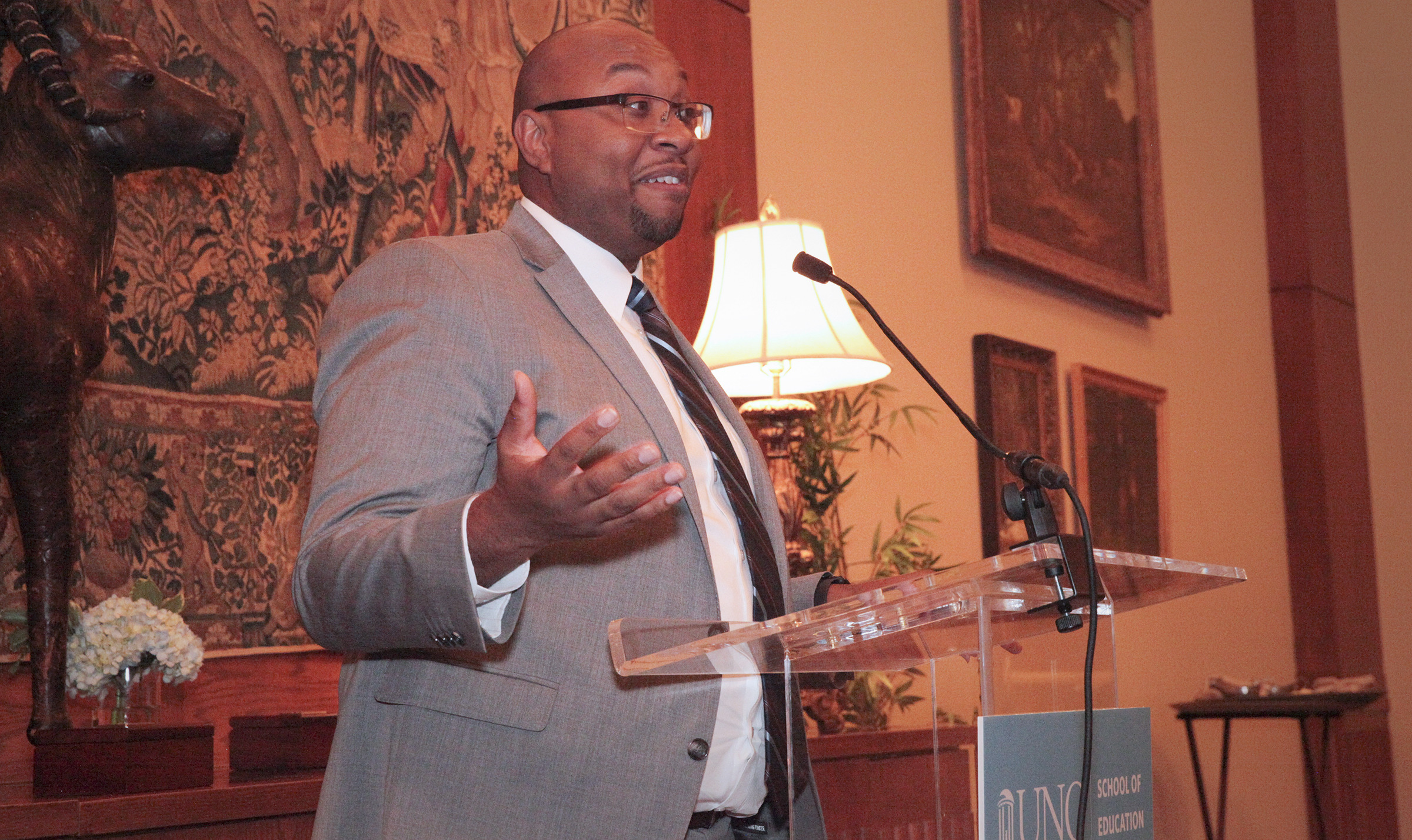I don’t have to tell this group what an honor and privilege it is to wake up every morning and work on behalf and for the children of North Carolina. It’s my calling and will forever be my life’s work.
But I don’t stand here alone. I accept it in the support and love of my village, my community.
I just want to take a second to acknowledge who they are and what they mean to me. First my Office of Equity Affairs team from Wake County.
When you’re fighting for those who have been historically and traditionally marginalized, who often don’t have a voice, recognition doesn’t come very often. So I just want to thank them for what they do every single day because I know it is not easy. It is not easy work. But we do it for the children.
I want to thank my sister and my brother-in-law. They know our work isn’t easy. But they always send a nice joke or two when they see our names in the paper. It lifts our spirits. It’s amazing what they do for us.
My wife, Kenya, and our two daughters for putting up with me and our family debates at dinner about social justice and its impact on education. My daughter is like, “Daddy, can we just eat tonight?”
And I’m often like, “I’ve got one more point to make.”
I am just honored and blessed with my parents, longtime public school educators who gave me a gift that I just can’t thank them enough for. They showed me what an awesome responsibility it is to be an educator. And I’m just proud to be able to serve in this capacity today.
And I couldn’t leave this platform without also talking about what this university means to me. But more importantly, the School of Education.
I’m reminded of a quote by Dr. Benjamin Elijah Mays, who was the president of Morehouse College and largely the intellectual framer for the Civil Rights Movement. He said, “You are not what you now are, but what you aspire to be.”
You are not what you now are, but what you aspire to be.
And that’s what the School of Education did for me as an educator.
I walked in and they said: “It’s not enough just to be an educator. But you need to think about
what type of educator you want to be.”
I remember names like Neil Shipman. You remember Neil. He’s not with us anymore. But I remember handing in my first paper and getting it back with all these red marks all over it and I felt like I was in sixth grade again.
But he was the first to push me to think critically. And he would say, “Trice, you’ve got to do it over.” As a full-time assistant principal at the time and a grad student, you know how you read things quickly, you put things on paper quickly, and you’re not thinking. But Neil was like, “You need to think deeper. You need to think harder about what you put on paper.”
People like Carol Malloy and Bill Malloy. They would invite me over to their home. Sometimes unannounced. I loved Carol’s spaghetti. She was famously known for her spaghetti, but again, more concerned about not only being an educator, but what type of educator will you be.
And Frank Brown. After our debates about jazz music and Starbucks, and you know Frank. Again, he was the first to say, “You are a student at the University of North Carolina at Chapel Hill, and with that comes a particular standard.”
And so when I reflect on the quote by Dr. Mays — “You are not what you now are, but what you aspire to be” — I think of giants like that. And that’s what I aspire to.
So, thank you for this award.
